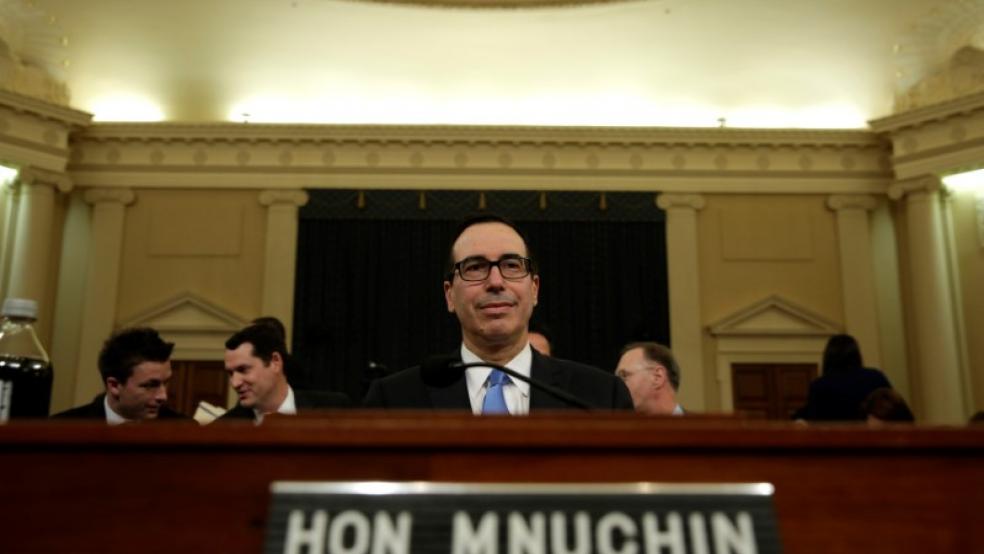Treasury Secretary Steven Mnuchin claims that the Trump tax plan will more than pay for itself, with the growth it unleashes helping to reduce the national debt by $1 trillion after 10 years. And while some other officials have shied away from such claims in recent days, there have been plenty of supply-side advocates making similar arguments. At an event held by the Heritage Foundation Tuesday, Rep. Jeff Duncan (R-SC), a member of the conservative Republican Study Committee, held up a hand-drawn image of the Laffer curve as he expressed his belief that that cuts will pay for themselves through economic growth, just as Art Laffer promised many years ago.
A new paper from the deficit hawks at the Committee for a Responsible Federal Budget takes on such claims about the wondrous revenue-boosting benefits of tax cuts and points to some of the abundant evidence that the theory has failed to live up to its claims. “While well-designed tax cuts may grow the economy (often not as much as tax reform), there is no case in which they could grow the economy enough to be self-financing,” the authors write. “At best, tax cuts can finance a fraction of their costs through faster growth – and maybe not even that.”
Their key points:
- There is no theoretical basis to suggest tax cuts could be self-financing. To do that, the economy would need to grow by $5 to $6 for every $1 of tax cuts.
- There is broad consensus among economic models that future tax cuts won’t pay for themselves. Some models find tax cuts would be partially self-financing, while others find the economic feedback would actually increase the deficit effect of tax cuts.
- Past tax cuts in 1981 and the early 2000s have led to widening budget deficits and lower revenue, not the reverse as some claim.
Disclosure: The Committee for a Responsible Federal Budget receives funding from the Peter G. Peterson Foundation. The Fiscal Times is separately funded by Peter. G. Peterson, and is editorially independent.





